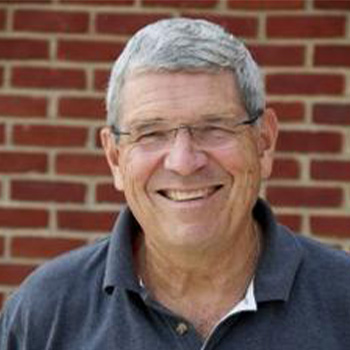Back to series



Jefferson and Wilberforce: Leaders Who Shaped Their Times
(This is a three-part series on Jefferson and Wilberforce:
Leaders Who Shaped Their Times Part 1, Part 2, Part 3)
Click here to open a Print - Friendly PDF
Leadership, even godly leadership, is not the sole province of the individual, but the outcomes are often shaped as much by those who advise, support, encourage, and come alongside a leader. It is within a network of relationships or of a like-minded community that the great movements of change occur. Those with whom leaders surround themselves, their choice of companions on the journey, help to make them who they are and determine what they can achieve. These colleagues also help to further shape and to sustain a transforming vision over time and bring it to reality. We have looked at the role of early mentors in shaping the commitments of Jefferson and Wilberforce; we now turn to examine how those around them later in life helped to sustain their purposes.
Leading Societal Change
Contemporary research on leading transformative change posits three key factors if societal and cultural change is to be successfully initiated: (1) a sense of urgency or great importance; (2) a compelling vision for change that captures the hearts and the minds of a wide group of people; and, (3) a guiding coalition which has the prestige and the capacity to help bring about the change envisioned.1 How these factors played out in the lives of Jefferson and Wilberforce is yet another telling contrast of the results of their commitments to ending slavery. . .
Jefferson: Leading Behind the Scenes
Jefferson’s powerful gift of written expression together with his naturally introverted and scholarly personality shaped a somewhat unique approach to his political and collegial work and indicated where he would make his impact. Even from his earliest political years, Jefferson’s superior writing talents were evident, and John Adams’ choosing him to draft the terms of declaring independence from England would prove to be the key to Jefferson’s spectacular rise. While Jefferson preferred to avoid public roles due to a thin and highpitched voice and a reluctance to speak publicly, his seeming shyness belied his large personal ambitions. He had a deep aversion to any conflict and had a need to be loved—to a degree quite unusual for one in his profession. Thus, Jefferson tended to work behind the scenes in his political life, becoming known as a “committeeman.” He trusted only a few men to carry his central themes of republicanism over federalism and freedom from the tyranny of religion and rulers. The man he trusted most throughout his life was James Madison. Madison’s role as collaborator with Jefferson on matters great and small—and even nefarious—is one that is largely unsung.
But ironically, it was also this behind-the-scenes approach to leadership that became Jefferson’s undoing with many, including not only his Federalist archenemy, Alexander Hamilton, but also his father figure, George Washington, and, most painfully, his sponsor and good friend, John Adams. This made the possibility of sustaining the cause of abolishing slavery more unlikely, because he had tarnished many of the key relationships he would have needed—all in favor of his personal ambitions.
Key Relationships
John Adams, Jefferson’s champion in the Continental Congress, was not only a mentor to the young and gifted Jefferson but also a close friend along with his wife Abigail when they served in France and England as ambassadors. But it was a collegial relationship that was not to last long into the Washington administration as Jefferson became more and more disenchanted with the Federalist bent of the government he joined as Secretary of State with Adams as Vice President. Resigning his post early for a return to Monticello, Jefferson would later allow his name to stand for election in 1796 and again in 1800 in a quiet campaign against Adams, to succeed Washington.
The breaking point came for the two as Jefferson chose to have Adams falsely tarred by hiring a journalistic flack to tarnish Adams’ image while Jefferson was ensconced in Monticello—a standard political “dirty trick” of the early years of campaigning. The subsequent split between Jefferson and John Adams and even more so, Abigail, would last until the men were in their last years.
Madison, on the other hand, was not only a neighbor in Virginia, but one who was the more public expression of the private Jefferson’s ideas. An early example came in the bill for Religious Freedom that Jefferson authored in the Virginia legislature. After an inability to see it through on its first offering, Jefferson was about to give it up, much like his bill on abolishing slavery earlier in his career. It was Madison who shared Jefferson’s passion to curb the role of the church in the affairs of government (and conscience) that would persist and carry it to completion while Jefferson was off in France as ambassador. It was also Madison who took a key part in the drafting of the Constitution and in writing much of the apologia for a Federal form of government (which we know today as The Federalist Papers). He also wrote regularly to Jefferson in France, keeping him apprised of the proceedings and ensuring that Jefferson’s advice played a role in the shaping of the Constitution in curbing the powers of the central government in favor of a balance toward the role of the states—a Jefferson tenet.
Over a lifetime, it becomes clear that Jefferson chose his colleagues for their agreement with him, their personal devotion, and their capacity to help him carry out his political ends. Madison was brilliant at it, and the two rarely differed, so much so that one commentator has said that without Madison there would have been no Jefferson. James Monroe was another colleague, and both would later benefit from Jefferson’s sponsoring of their careers.
Unfortunately for those colleagues and sponsors that he turned against, Jefferson was unable to bridge the gap. He never reconciled with the proud Washington who could not bear to bring up his “son’s” perfidy in making public a comment denouncing Washington’s meek captivity to the Federalists. And as for the Adamses, it was only by the tireless efforts of Dr. Benjamin Rush through a benign subterfuge, that Jefferson and Adams were able to patch up the wounds of Jefferson’s smear campaign and initiate a remarkable end-of- life correspondence.
Right up to the end of his life, Jefferson was a potential rallying point for those interested in seeing the full realization of the vision for equality of all. But not q1prior to his election as President in 1800 or during his presidency or even when he became more and more an icon in his latter years—all times when his influence might have been most effective—did he provide influence and agree to take up cause with those who would abolish slavery, including the lone “founding father” who did, Benjamin Franklin, and the long time groups campaigning against the ownership of human beings, particularly the Quakers. While he realized that “we have the wolf by the ears” in the dilemma of when and how slavery would end, he voiced a reluctance to publicly act, even while giving those who sought his leadership verbal encouragement.
A good example of this reluctance—as well as the fullest explanation of his reasons for not offering to lead emancipation efforts—came in a letter he sent in reply to Edward Coles. Coles had solicited the former President’s support in the cause of abolition, appealing to him as an Albemarle County neighbor and also as private secretary to James Madison. Coles was no dreamy young idealist but was to become Governor of the new state of Illinois where he moved with his freed slaves and pursued the course of abolition for the remainder of his life.
Jefferson’s reply is essentially a long apologia for his early championing of the cause as a young legislator but doing little thereafter. Astonishingly, he maintained that from the time he was in France as ambassador in 1787 until he returned to Monticello for good in 1809 when his two terms as President ended, he had “little opportunity of knowing the progress of public sentiment here on this subject.”2 His hopes, he concluded, had been placed in the younger generation who would see the importance of extending liberty in emancipating the slaves as of first import. Such was not the case, he lamented. Jefferson also failed to note to Coles the debates he took part in from afar in his latter years, favoring the extension of slavery to the western states as balancing the interests of northern manufacturing and southern plantation economies.
He ends his letter with an apt expression of his enlightened worldview—“Yet the hour of emancipation is advancing, in the march of time ....”3 There is no reply to the call to help rally the younger generation to the cause and take league with Coles and others of that generation. Ironically however, he does extol the example of Wilberforce to Coles as one to follow in his quest.
The real cause for such reluctance to lead the abolition effort? One explanation may well be that the colleagues and supporters that mattered most to Jefferson in his rise to power and in his latter years, were those of his own planter class in Virginia and the south. Roger Kennedy perhaps best sums up this view:
Jefferson was driven by an insatiable hunger for approval of his fellow planters. Such a need for the affirmation of peers is common among political persons. In Jefferson’s case, it was so intense as to overwhelm his
commitment to concepts distasteful either to his contemporaries among the planter class or thereafter to their sons. He sought brothers while attacking the authority of fathers.
The Saints
Wilberforce, were he alive today, would have been the first to say that the end of slavery in all of Britain was not his accomplishment alone. While this would not be false modesty, he nevertheless was the engine for change whose persistence in what he believed to be right, his good humor and patience under vicious personal and even physical attack, and his creative talent for making a moral cause a popular one, clearly marked the non-partisan coalition in Parliament that was given the nickname, “The Saints.”
Many of “The Saints” chose to live in a community called Clapham Common. Later generations would refer to them as the Clapham circle or sect. They were in and out of each other’s homes, worshipped in the same Anglican church, and were willing to submit their political careers and egos to the cause they all shared, operating, as one contemporary described, like “a meeting which never adjourned.” Begun as a small group in 1792 by Wilberforce and his second cousin, Henry Thornton, it was to continue until Wilberforce’s death in 1833. It was this group that not only allied with him, but also helped to encourage him and sustain his commitment in the darkest times. He was clear that the network of support he enjoyed was “indispensable in enabling him to serve effectively in politics.”5
Among the Clapham circle were leaders of British society and, given that Wilberforce’s strategy to transform thinking was to influence its leaders, this group proved invaluable. They numbered not only political leaders like Sir William Smith, but also the jurist, James Stephen, Master of Chancery; the poet, educator, and playwright Hannah More; clergyman and author Gisbourn Thomas; prominent businessman Charles Grant; colonial governor Zachary Macaulay; Henry Thornton, a wealthy banker; John Venn, the Rector of Clapham parish; Lord Teignmouth, Governor General of India; and the abolitionist thinker Granville Sharp whose campaign to eliminate slavery in England was already well known in a series of trials in English courts.
All shared not only a common purpose but also a common Christian belief. What they needed was a leader, a voice that would be taken seriously in the public eye. The choice fell to Wilberforce whose faith and belief in eradicating slavery were by now well known. It was this group that would sustain Wilberforce and each other again and again through prayer and personal relationships as, each year, defeats in Parliament piled up the mound of discouragement.
It was not only the toll of defeats but also the virulence of the opposition in the early years that was daunting. The crown opposed them. The greatest hero of Britain, Admiral Lord Nelson, not only opposed their cause but also declared Wilberforce a traitor. And the opposition became so intense that Wilberforce was twice publicly attacked and began to have an armed guard travel with him where he went. But Wilberforce continued without returning the rancor.
After his conversion, Wilberforce would declare to his friend and Prime Minister, Pitt, that now his “party was humanity.” Pitt was the political leader who advocated that Wilberforce introduce his first bill on abolition in 1787, and was a staunch ally in the fight for the next several years. But when war broke out with France in 1793, the fear of the French revolution spreading to England and the possible rebellion of British slaves gave Pitt cause to back away from his commitment in the name of the greater cause. Wilberforce, despite tremendous pressure, would not follow his party’s lead. Political convenience, even in the name of party unity and national interest would not be put ahead of the greater cause of human freedom.
Another key to the ultimate success of Wilberforce lay not only with his close friends in Clapham and other fellow Christians but also with those who may have opposed him at the outset or who did not share his beliefs. He became known for being able to work with those whose ideology or religious beliefs differed from his own. One of his biographers describes this quality as that of “being a bridge-builder in public life—persuading those with whom he disagreed, and commending his views through civil discourse.”6 He had a view that embraced all of humanity and which held out hope that opponents might find areas in which to work in concert.
His personal respect for others, even those who vigorously opposed his views on faith or the changes needed in society, was the character quality that allowed even his opponents to rise and applaud him when the bill ending the slave trade eventually passed in 1807. This was one central characteristic that saw many over his lifetime won to his side. Had he employed vigorous denunciation and vilification, they would have only hardened their stance; had he plied the subtle use of power to undermine his opponents, he would have alienated potential allies as was seen in some of Jefferson’s dealings. While he would not compromise his beliefs, Wilberforce was very ready to adopt differing tactics when necessary. He would not, however, yield to pragmatism over virtue and give up the steady fight for ending slavery in order to advance his career. He almost certainly gave up a likely opportunity to be Prime Minister and succeed Pitt because of his devotion to his two purposes.
Wilberforce and the Clapham circle also made cause with a wider circle of influential people who would help carry the message to the leaders and the grassroots. One of the best stories is the recruitment of Josiah Wedgwood, the maker of fine china. He designed a special Wedgwood pattern with the distinctive pale blue and white colors but with an imprint of a slave in chains on the center with the inscription, “Am I not a man and a brother?” These were considered conversation “launchers” by Wilberforce, objects providing an opening for dialogue after the finished meal uncovered the message of the evening.
There are some lessons here that would be well worth noting. First, Wilberforce did not act alone; although he took the lead thrust upon him by his call and by his Clapham colleagues—many whom had been laboring for those in need for years before—they worked together as a virtuous coalition. Other practices worth noting are:
- They did their homework with excellence, not basing their positions on “right” or on rhetorical passion alone.
- They built a wider support community around them.
- They had a clear sense of a purpose to accomplish.
- They would not accept setbacks as final defeats, even in the name of pragmatism.
- They stayed the course for the long haul.
- They refused to allow their opponents’ virulent personal attacks to be answered in kind—they stuck with the issues and did not retaliate.
- They sought to understand their opponents and to engage in meaningful dialogue.
- They accepted small gains on the road to the larger prize.
- They transcended a single-issue climate by addressing many issues within a need for a moral climate in all of society.
- They had a sense of God’s providential leading and a faith that He would guide them if they acted faithfully.
As another of Wilberforce’s biographers has concluded, Wilberforce:
...gives an example of how to create the momentum that
leads to positive change. His life is proof that a Christian
statesman. . . can change the times in which he lives;
though he cannot do so alone.7
The Contrast
It is a tantalizing question to consider: if Jefferson had been surrounded by a Clapham-like group, would he have taken up the cause of slavery while President or even afterward when the union was more secure? In my own estimation, I think not.
First, his nature, unlike Wilberforce’s, was not one to try and take cause with those who did not adhere to his own beliefs. Thus, he could undermine his longtime friend and sponsor, Adams, privately vilify his “father” and advocate, Washington, and be comfortable doing so as long as he was behind the façade of retirement at Monticello. It is also apparent from many biographers that he was a man with huge personal ambition, even though he denied it. He could not subordinate his political ambitions to a greater purpose as much of the Clapham circle and Wilberforce were able to do. Political pragmatism was far more important in the long run to Jefferson than the lofty vision of the Declaration. And, finally, Jefferson did not have either the personality or possibly the strength of character to persevere against opposition and certainly against widespread personal vilification. He once almost quit public life entirely after being driven from the governor’s house by the British, and the cries of “coward” wounded him for life.
Without Wilberforce’s sense of a call from God and thus His present help to provide strength for the long battle, Jefferson saw himself as essentially on his own with a few trusted allies. He would not have been able to take the kind of slings and arrows that were the lot of the Clapham group and Wilberforce.
As for those who later became the Claphamites, until Wilberforce took up the lead at God’s behest and theirs, their passion could not gain traction in a culture where as Wilberforce observed, “selfishness” was the reigning quality of its leaders. The unique coalescence of the times, the man, and the community along with the preparation of the culture’s soil over the years made for an outcome in British society few would have dared to prophesy. Can it ever be replicated? It remains for some to make the attempt. Until then, it stands as a singular lesson.
In Part III we will conclude with a look at the contending worldviews evidenced in the lives of Wilberforce and Jefferson and at the legacy of their lives. What did they leave behind them to attest to the enduring quality of their leadership and why?
Notes
1 John Kotter, Leading Change and The Heart of Change (Boston: Harvard Business School Press, 1997 and 2003).
2 Adrienne Koch and William Peden, eds., The Life and Selected Writings of Thomas Jefferson (New York: Random House, 1944), p. 642.
3 Ibid.
4 Roger Kennedy, Mr. Jefferson’s Lost Cause: Land, Farmers, Slavery and the Louisiana Purchase (New York: Oxford University Press, 2003), p. 30.
5 Kevin Belmonte, Hero for Humanity (Colorado Springs: NavPress, 2002), p. 139.
6 Ibid.
7 John Pollock as cited in Belmonte, Hero for Humanity, p. 180.

Ray Blunt
ProfessorRay Blunt teaches philosophy and worldview at Ad Fontes Academy high school and is a Senior Fellow at The Washington Institute for Faith, Vocation, and Culture. He was previously an Adjunct Professor for Leadership and Business Ethics at Gordon-Conwell Theological Seminary. A 1964 graduate of the U.S. Air Force Academy, he holds a master’s degree in economics and political science as well as master’s in theological studies. He is the author of numerous articles on leadership, character, vocation, and change management and two books: Crossed Lives, Crossed Purposes: Why Thomas Jefferson Failed and William Wilberforce Persisted to Lead an End to Slavery, Wipf and Stock, 2012, and “Leaders Growing Leaders” in The Jossey-Bass Reader on Nonprofit and Public Leadership, 2011.

 COPYRIGHT: This publication is published by C.S. Lewis Institute; 8001 Braddock Road, Suite 301; Springfield, VA 22151. Portions of the publication may be reproduced for noncommercial, local church or ministry use without prior permission. Electronic copies of the PDF files may be duplicated and transmitted via e-mail for personal and church use. Articles may not be modified without prior written permission of the Institute. For questions, contact the Institute: 703.914.5602 or email us.
COPYRIGHT: This publication is published by C.S. Lewis Institute; 8001 Braddock Road, Suite 301; Springfield, VA 22151. Portions of the publication may be reproduced for noncommercial, local church or ministry use without prior permission. Electronic copies of the PDF files may be duplicated and transmitted via e-mail for personal and church use. Articles may not be modified without prior written permission of the Institute. For questions, contact the Institute: 703.914.5602 or email us.
-
Recent Podcasts
Reasoning Requires Faith – Jeffrey Geibel’s Story
by Jeffrey Geibel on July 4, 2025What happens when the pursuit of intellectual certainty...Read More
-
Fix Your Eyes Upon Jesus
by Steven Garber, Aimee Riegert on June 27, 2025
-
An Honest Search for God – Dr. Jay Medenwaldt’s Story
by Jana Harmon, Jay Medenwaldt on June 20, 2025
-
Recent Publications
Are Miracles Possible
by Christopher L. Reese on June 1, 2025The 21st century has provoked many conversations and...Read More
-
Is God Just, Not Fair?
by Jennifer Rothschild on May 15, 2025
-
Seeking Dietrich Bonhoeffer
by Joseph A. Kohm on April 29, 2025
0
All Booked
0.00
All Booked
0.00
All Booked
24720
The Adventure of Joining God in His Work Live Online Small Group 7:00 PM CT
https://www.cslewisinstitute.org/?event=the-adventure-of-joining-god-in-his-work-live-online-small-group-700-pm-ct&event_date=2025-09-16®=1
https://www.paypal.com/cgi-bin/webscr
2025-09-16

Next coming event
Days
Hours
Minutes
Seconds
The Adventure of Joining God in His Work Live Online Small Group 7:00 PM CT
On September 16, 2025 at 7:00 pmSpeakers

Ray Blunt
Professor
Team Members

Ray Blunt
ProfessorRay Blunt teaches philosophy and worldview at Ad Fontes Academy high school and is a Senior Fellow at The Washington Institute for Faith, Vocation, and Culture. He was previously an Adjunct Professor for Leadership and Business Ethics at Gordon-Conwell Theological Seminary. A 1964 graduate of the U.S. Air Force Academy, he holds a master’s degree in economics and political science as well as master’s in theological studies. He is the author of numerous articles on leadership, character, vocation, and change management and two books: Crossed Lives, Crossed Purposes: Why Thomas Jefferson Failed and William Wilberforce Persisted to Lead an End to Slavery, Wipf and Stock, 2012, and “Leaders Growing Leaders” in The Jossey-Bass Reader on Nonprofit and Public Leadership, 2011.





